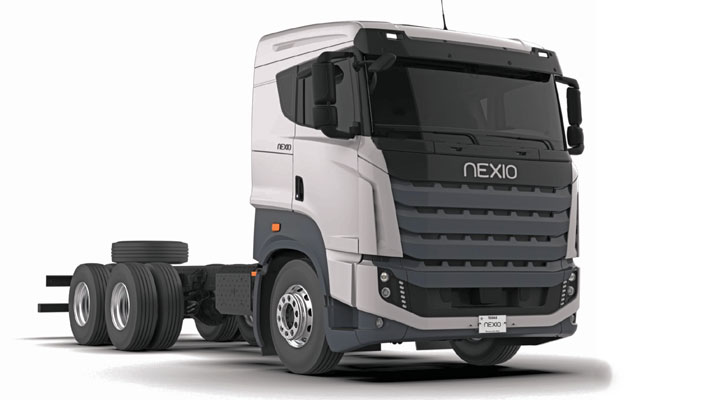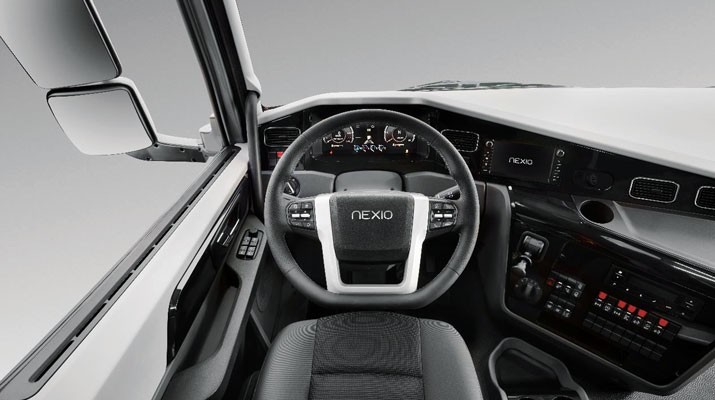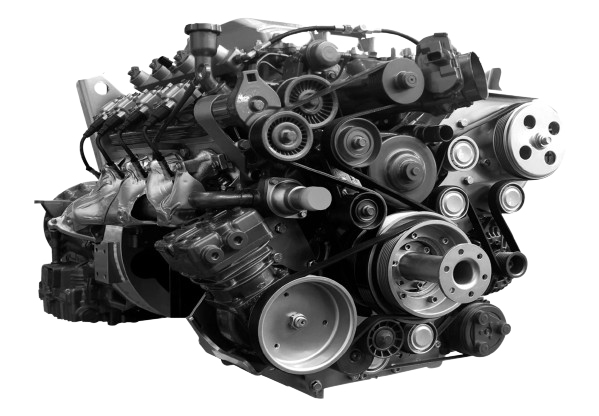Nexio looking to bring propane-powered bobtail to US market
A Texas-based truck manufacturer is looking “to embed ourselves in the culture of LPG” by bringing a dedicated propane-powered bobtail to the U.S. market.
Nexio, with headquarters north of Houston, unveiled itself to the industry at May’s Western Propane Trade Show & Convention in Reno, Nevada.
Horace Mast, the company’s COO and chief technical officer, presented Nexio’s 7.2-liter, supercharged V-8 engine that’s been powering applications in Europe since 2020. The engine is built in Texas and exported across the Atlantic.
Mast says he made the trip to Reno “to discuss the technology around that engine” and the opportunity to bring the bobtail solution to market.
“There’s almost no other industry where a vehicle represents the culture of what they do,” Mast says. “I’m very passionate about engines. I’m very passionate about the products. And everyone in this industry is passionate about propane.”

Nexio plans to offer a propane autogas truck line that includes single rear axle, tandem rear axle and tractor configurations in Class 7 and 8. (Photo courtesy of Nexio)
At the helm
Nexio is making its entry into the U.S. propane industry alongside a veteran of the alternative fuel engine space.
Gary Winemaster co-founded Power Solutions International (PSI) in 1985. Under his leadership, PSI provided integrated solutions to global equipment manufacturers in the industrial and on-road markets. He retired in 2019 after 34 years with the company. At that time, PSI, with more than 1,000 employees, had shipped more than 1 million engines around the world.
“So, it has a rich history, and Gary has a rich history with you, your products in the market,” Mast told the propane industry audience in Reno. “And I do as well.”
Mast says he’s trained as an engineer but is an entrepreneur at heart. He started an automotive aftermarket and engineering company in 2008, after getting his mechanical engineering degree from Texas A&M.
“I’ve been assembling engines in my factory for the entire life of my company, so [I have a] rich history of building engines and manufacturing engine components,” he says.
That background led him to Winemaster, who sought support in developing new engines to replace those exiting the market. Mast and Winemaster collaborated on 8.8-liter and 4.3-liter engines.
The 8.8, which replaced the GM 8.1-liter engine, has been a crucial product for the propane and natural gas industries, Mast says. They redesigned the engine for improved efficiency, combustion and overall performance as an on-highway LPG product. It became a key component in the propane school bus market and was used in Freightliner’s medium-duty truck line. They also developed the 4.3-liter, V-6 engine for the forklift market.
“So that was the entry I had into the propane industry,” Mast says. “And we’ve really been focused on developing engines in that market ever since. We just followed through with all the knowledge and expertise we had for doing propane engines on a different engine platform.”
Mast and Winemaster established Nexio to focus on LPG engines, its customer basis in Europe and bringing the engine and truck to the U.S.
Winemaster, who has assumed the role of Nexio’s CEO, says Mast was “integral to our process” at PSI.
“So, when we started talking about how [we can work] together, this seemed like the perfect opportunity,” says Winemaster, adding, “We’re going to bring a European truck to the [U.S.] market, and it’s going to exceed expectations.”
Building a foundation
Nexio has spent recent months attending industry events and talking to propane marketers about the project.
“We’re going to do our best to build an industry-specific truck,” Mast says.
In the near term, the company looks to undertake the rigorous process of receiving U.S. Environmental Protection Agency certifications, build a prototype U.S. spec version of the truck and deploy the prototype at retail propane operations.
If the timeline goes as planned, Nexio will begin delivering trucks in 2026.
“It’s a more rigorous process than it used to be,” Mast says of the certifications. “Because we are entering 2027 regulations, even though we’ll start production 2026, our model year will likely be 2027, so we’re going to certify to the 2027 durability requirements.”
Nexio plans to provide the U.S. market with a propane autogas truck line that includes single rear axle, tandem rear axle and tractor configurations in Class 7 and 8.
Asked about the features that will draw the industry to the truck, Mast says, “Safety is going to be No. 1, and it’s going to be the return on investment. It’s going to be the operational cost. We feel like the drivers are going to love the cabin that we’ve designed. We think the drivers will enjoy and want to drive the truck.”
Mast says the truck design, already seen in the U.S. for a variety of work trucks, is known for its weight distribution from front to rear axle, for reduced rollover risk, as well as for driver visibility and a tight turning radius. Nexio emphasizes driver comfort, including noticeable noise reduction over diesel.
The low-speed, high-torque propane engine is “designed and developed from the ground up,” Mast says.
The engine is certified and used in Europe in commercial truck and urban bus applications.
“Where we get instantaneous power, instantaneous torque – faster than a turbocharged diesel – is the supercharger,” Mast says.
He describes the power (330 horsepower at 2,400 rpm) and torque (775 lb.-ft. at 1,900 rpm) and says the idle friendly engine will benefit from not needing diesel exhaust fluids, aftertreatment or having to meet strict diesel regulations.
“Marketers are used to the power they’re getting out of their diesel,” Winemaster says. “What we’ve done is provided the same power, maybe a bit more, and it’s a propane-dedicated engine designed from the inside out.”
Service issues
Following his presentation in Reno, Mast was asked about how the company would respond to service issues once the truck is in marketers’ hands.
“We will build up our own network of service across the country,” he responded. “We will be a service-first company, and we have to be.”
Mast addressed the service issue again the following day, noting how Nexio plans to boost its staff of service technicians. He envisions an overall employee count of 40 to 60 focusing on engine production and certification of the truck in 2025, with that number increasing to about 100 in 2026.

Nexio underscores the importance of driver comfort in its design. (Photo courtesy of Nexio)
“We are going to follow our fleets that we build out for our marketers, and we will be solely focused on them, on service, on uptime,” he says. “It is our only customer; it is our only truck.”
By the time Nexio’s truck enters the U.S. market, its engine will have had about five years of operational history in Europe, Mast notes. The company is also looking ahead to future versions of the engine.
“We developed and have been established in Europe since 2020, but we’re certainly not sitting on our laurels,” he says. “We are also working on developing future solutions for your market because you have some very challenging issues with greenhouse gas regulations.”
Winemaster adds, “The engine is going to be very important, but the overall solution is what everybody is looking for.”
Nexio hopes to be part of that solution, in an industry that delivers billions of gallons of propane each year – with most of that volume being transported on diesel-fueled vehicles.
“This is a green fuel, a low greenhouse gas fuel; it’s better, but all the trucks delivering the fuel are burning diesel,” Mast says. “At the end of the day, we feel they’re going to want to practice what the industry preaches by running their trucks on propane.”

















